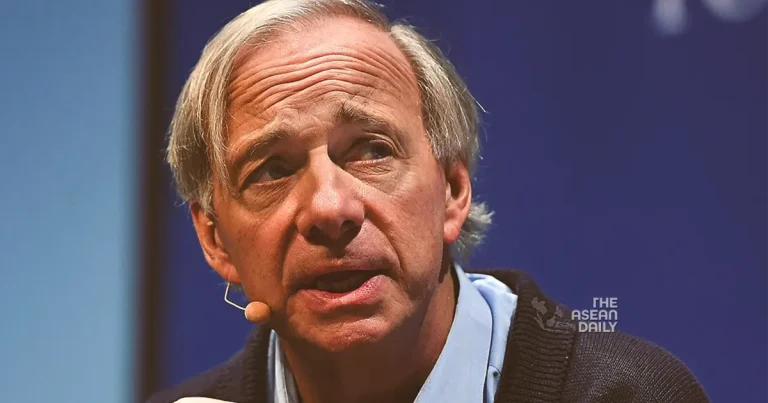4-10-2023 (NEW YORK) Geopolitical tensions between the United States and China are reaching a critical point that could potentially mark the beginning of a new world order, according to billionaire Ray Dalio. Speaking at the Fast Company Innovation Festival last month, the founder of Bridgewater Associates highlighted the four types of wars that extend beyond military combat, asserting that the US and China are currently engaged in all four: trade war, technology war, capital war, and a war for geopolitical influence.
Dalio’s remarks aimed to shed light on how to navigate a tumultuous era characterized by global political and economic turmoil. Despite China’s apparent retreat in various areas, such as the depreciation of the yuan, declining foreign investment, and pushback from the private industry domestically, Dalio emphasized that the long-term rivalry, competition, and potential for war between the US and China will persist. He outlined several sources of growing tensions, including trade and capital flow issues, the US blockade on semiconductor chips (which has been likened to an “act of war”), the delicate situation with Taiwan, and the ongoing conflict with Russia.
According to Dalio, “In the classic cycle, the economic war becomes very severe before you have the military war.” He drew parallels to the events preceding World War II, where the US first cut off Japan’s access to oil, froze its financial assets, and ultimately declared war. Dalio warned that similar moves, such as cutting off semiconductor chips and imposing sanctions on China, are approaching “very close to the red lines.” He expressed particular concern about the upcoming election, speculating that some presidential candidates may be more aggressive in pushing these limits. Public support for Taiwanese independence, in Dalio’s view, could be “the equivalent of a declaration of war to the Chinese.”
In his latest book, “The Changing World Order,” which is part of his series “Principles,” Dalio extensively examined the ten most powerful empires of the past 500 years, including the Dutch, British, Japanese, Russian, and Ottoman empires, as well as the last three reserve currencies. He observed that each empire lasted approximately 250 years, with a transition period of one to two decades preceding the rise of the next. Dalio highlighted the Big Cycle as an archetype that encompasses several stages in an empire’s trajectory, from productive debt growth and peace to economic downturn, currency devaluation, revolutions, wars, debt restructuring, and eventually, the establishment of a new world order.
Based on his calculations, Dalio currently ranks the United States as the world’s leading nation, but one that is in decline, with a cycle that appears “mostly unfavorable.” In contrast, he sees China as an ascending power.
In a broader context, Dalio noted three significant challenges that he believes America is facing, which have never occurred in our lifetimes but have been recurring throughout history. The first two challenges are domestic: the mounting national debt and a fragmented republic characterized by a widening wealth gap and deep-seated values differences. Dalio remains optimistic that these problems can be addressed, suggesting the formation of a bipartisan cabinet and the implementation of mutually agreed reforms akin to the Manhattan Project.
However, the third challenge relates to the global power struggle, which inevitably entangles the US in conflict with China.
Dalio contends that these changes will come swiftly. “These changes are going to happen in the next five years,” he predicted, clarifying that he means within the next year, possibly triggered by the upcoming November elections.
Although the overall outlook he presents appears grim, Dalio, known for his adherence to principles, shared another one at the festival: “If you worry, you don’t have to worry. And if you don’t worry, you need to worry.”
Elaborating on this principle, Dalio said, “If you worry, then you will take action to protect yourself from the things you’re worrying about.”




